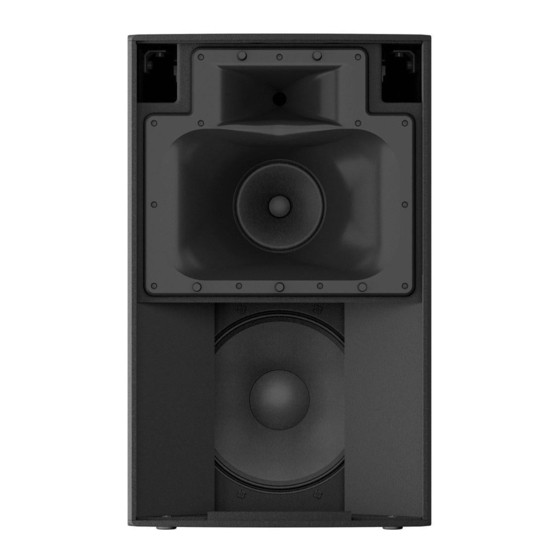- ページ 15
スピーカーシステム Yamaha DXS18XLF-DのPDF オーナーズマニュアルをオンラインで閲覧またはダウンロードできます。Yamaha DXS18XLF-D 31 ページ。 Powered loudspeakers/subwoofer
Yamaha DXS18XLF-D にも: オーナーズマニュアル (31 ページ), オーナーズマニュアル (31 ページ), オーナーズマニュアル (31 ページ)

Cardioid Mode Settings
Arrange DXS-XLF(-D) series speakers (hereinafter referred to as DXS-XLF(-D)) so that they are facing in opposite
directions. Configure the cardioid mode setting on the screen. (See !2 on page 10.) All other settings (LEVEL,
POLARITY, LPF etc.) should be configured to the same settings.
NOTE
• Use the same DXS-XLF(-D) model, and the same input signal. You can also set the [THRU/DSP OUT] switch to [THRU] to use in a sequence
connection. See the example arrangements below.
• In order to maximize the cardioid characteristics, position the cabinets at least 1.2 m away from walls.
Example arrangement with two units side by side
From
the mixer
To the DXS-
XLF(-D) on
the right
CARDIOID settings
Example arrangement
with three units side
by side
From
the mixer
To the DXS-
XLF(-D) in
the center
CARDIOID settings
From the mixer
Audience
To the DXS-XLF(-D)
on the right
From the mixer
Audience
To the full-range
speakers
From the
DXS-XLF(-D)
on the left
Stage
From the DXS-XLF(-D)
on the left
Stage
Subwoofer
To the full-range speak-
ers (when full-range
speakers are placed
after subwoofers)
From the
DXS-XLF(-D)
in the center
15
